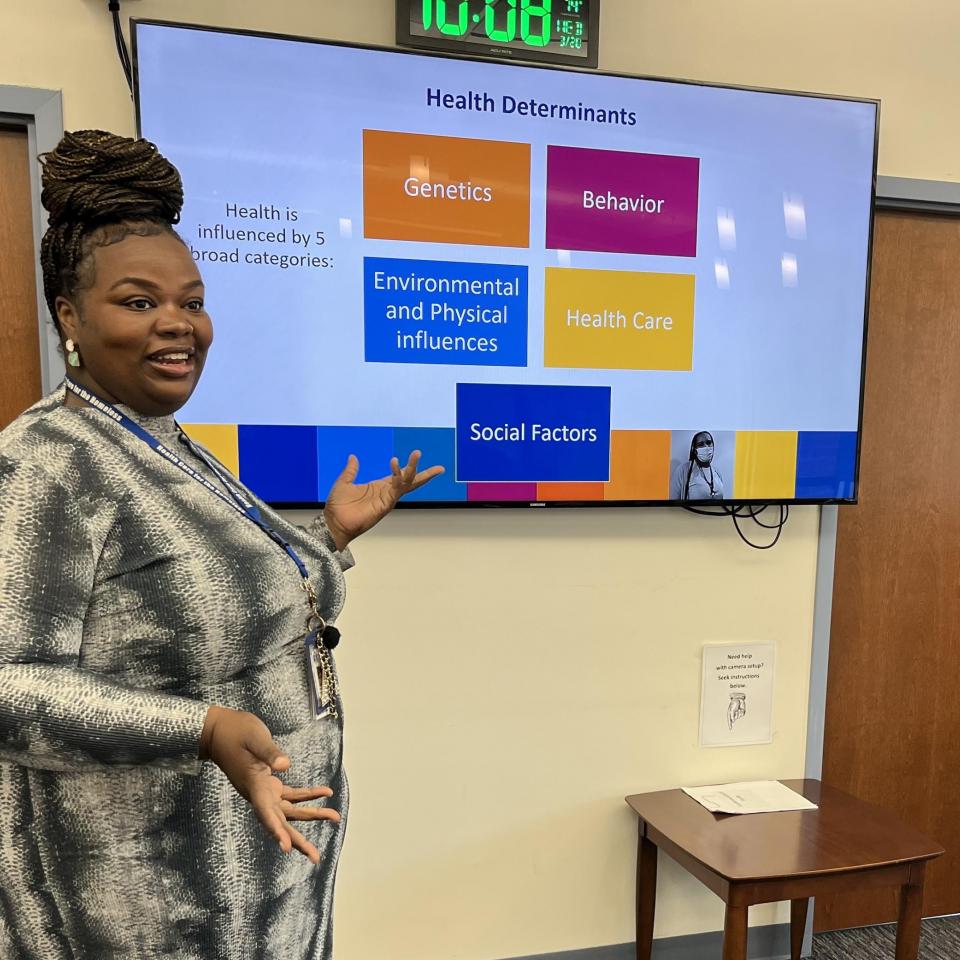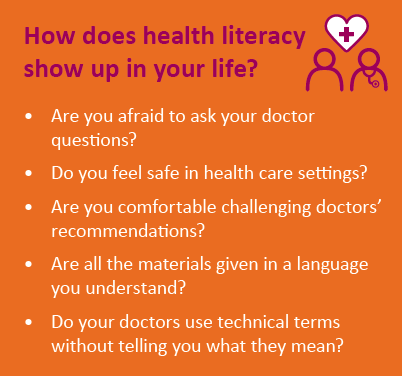We couldn’t be happier to welcome back Erick Torres, RN to the agency as our new Director of Nursing. Erick earned his Bachelor’s of Science in Nursing at Miami Dade College and brings six years of nursing and nurse management experience. A true team player, Erick’s years in our Pediatric & Family Clinic demonstrated his enthusiasm for the work, easy rapport building with clients and passion for collaboration. Get to know him in this Q&A.


04.19.24
Since starting in January 2022, REI Health Specialist Arie Hayre-Somuah, LMSW, MPH has worked with our clinical teams to identify health disparities and move us closer to health equity. This year, she is turning her focus to the topic of health literacy.
We all want to make informed decisions about our health when we see a doctor. But it can be confusing and overwhelming to wade through all the information. Our ability to process and understand health information relates to the concept of “health literacy.”
When you hear the word “literacy,” it is easy to think only about the ability to read. But health literacy is a far broader concept: we are speaking to a person’s ability to ask relevant questions, assess information as credible, communicate effectively, use medical tools like a thermometer correctly, or understand instructions. Generally, health literacy is a person’s ability to understand, comprehend, and apply all forms of health information to make informed health decisions.
How does someone’s health literacy level impact their experience getting care?
If you do not understand the medical terms your doctors are using, that may change how you answer their questions, which may affect your diagnosis and treatment. If the instructions on your prescription label are unclear to you, that determines how and if you take your medications. When a clinic fails to post flu clinic information in languages spoken by the people they serve, those individuals are less likely to know about the flu clinic and get vaccinated. These are small but important examples of how low health literacy can lead to poorer health outcomes including more hospital stays, higher medical costs, and misdiagnosis or treatment errors.
How does health literacy tie into racial equity?
At its core, health literacy is an issue of equity. Historically, Black and Brown people in the U.S. have been denied the opportunity to engage with resources that could positively affect health literacy levels. Examples of this include 18th and 19th century laws banning teaching enslaved people to read and write, Jim Crow laws that legalized racial segregation and limited non-white individuals’ access to equitable education and health care, and income inequality resulting from systemic oppression.
Additionally, due to the legacy of unethical medical treatment and research in the U.S., such as the mass sterilization of Puerto Rican women in the 1930s, and the Tuskegee syphilis study from the 1930s-1970s, high levels of medical mistrust exist within these communities. A person cannot make informed health decisions if they do not trust the information they are given or the people who deliver care. As a health care clinic committed to racial equity and inclusion, it is our responsibility to prove our trustworthiness through our care—and ensuring clients have the tools necessary to make the best health choices for themselves is the first step.
What’s in store for 2024?
We have been informally addressing health literacy through methods like avoiding medical jargon where appropriate, using language translation lines, and ensuring all health education information is available in English and Spanish. However, we aim to become more deliberate about the methods we use to engage clients of varying health literacy levels. I am excited to formalize this process with a training to reintroduce our clinical staff to a shared concept of health literacy—what it is, why it’s important, and how it impacts client care. I also plan to work alongside providers to identify a standard assessment tool to use during intakes. By having a basic understanding of someone’s health literacy from their first visit, staff can provide more individualized care for clients to achieve better health outcomes.

More Recent News
Transgender Day of Visibility is dedicated to celebrating and raising awareness about the transgender community worldwide. The day aims to promote greater understanding, acceptance, support, and inclusivity for transgender people.
March welcomes Women’s History Month. We come together to honor all those who experience life through the lens, body, spirit, and identity of a woman. Explore a few ways you can celebrate Women’s History Month— past, present, future, and fluid— in 2025.
February 1st marks the start of Black History Month. During this time, we have a chance to focus on the significant role Black populations have played in shaping the world and to celebrate their contributions to society that have often gone overlooked.